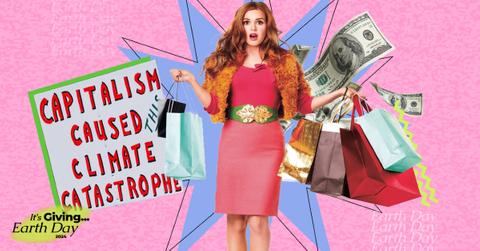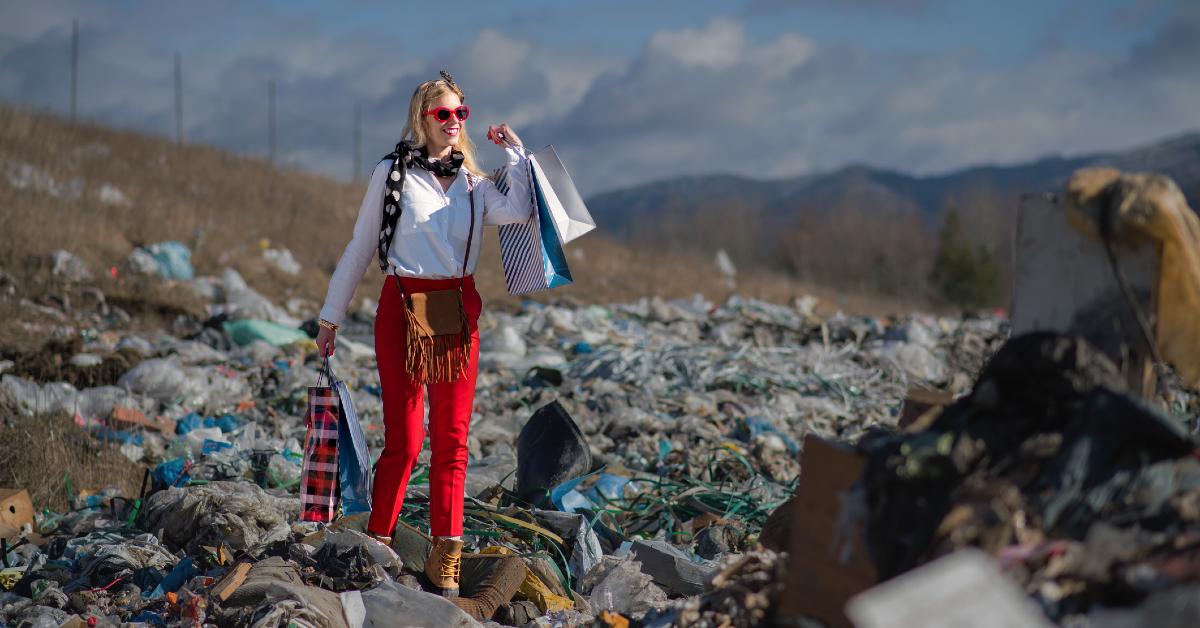It's Giving... Responsible Capitalism: Using Our Wallets to Make a Statement
Does responsible capitalism even exist?
Published April 22 2024, 8:00 a.m. ET

Though we at Green Matters love highlighting moral companies that practice sustainability, inclusivity, and offer quality low-waste products, the dirty nature of capitalism is unavoidable. But does showcasing what we deem to be ethical companies fuel a corrupt economic system? Does responsible capitalism exist?
You may have heard the biblical verse 1 Timothy 6:10 (NIV):
"For the love of money is a root of all kinds of evil. Some people, eager for money, have wandered from the faith and pierced themselves with many griefs."
The quote offers a bleak take, an ominous warning. And while Forbes explained that capitalism is wasteful, abusive, and inequitable, it also recognized it's led to prosperity for many — but not all — individuals.

Having a free market is rad in theory, but responsible capitalism — perchance an oxymoron — rejects the ugliness that comes with it, aka mass consumerism.
With Earth Day 2024 here, let's analyze the responsible capitalism theory and guide others to a more sustainable path in our materialistic, ad-saturated capitalist hell. (Too bleak?)
How do we define responsible capitalism?
Responsible capitalism is pretty subjective.
The European Corporate Governance Institute (ECGI) defines responsible capitalism as "an economic system that accommodates private ownership and the pursuit of market opportunities while achieving societal goals."
As per the organization FIRST Strategic Insight, responsible capitalism "requires a fundamental integration of the needs of the wider community, care for the communities in which the business operates, environmental initiatives and support for the arts and culture, with the business’s goals and processes."
Responsible capitalism is admittedly quite broad; it's one giant gray area. However, wanting a healthy planet to live on is surely a universal societal goal.
British politician Ed Miliband believes responsible capitalism is about fairness. Specifically, in a 2013 piece for The Guardian, he wrote that irresponsible capitalism "sees huge gaps between the richest and the poorest, power concentrated in a few hands." In contrast, responsible capitalism allows businesses to chase profits while "power is in the hands of the many."
Finding responsible capitalism in a late capitalist society is difficult...
The Atlantic's 2017 article "Why the Phrase 'Late Capitalism' Is Suddenly Everywhere" defines late capitalism as a "catchall phrase for the indignities and absurdities of our contemporary economy." When used in pop culture commentary (and sometimes memes), the term is often satirical, mocking the dismal nature of our money-obsessed, often manipulative culture.
Money-making internet trends often last five minutes, leading to overconsumption, questionable labor practices, and cheaply made products, which pile up in landfills. Think of the overwhelming amount of mass-produced Barbie movie merch, or the "I Survived the NYC Earthquake April 5, 2024" shirt that materialized just hours after the quake hit the U.S. Northeast that morning.
Quality, intentionality, and purpose are lost.
How do we engage with responsible capitalism?
It's time we avoid symptoms of late capitalism. One can argue that we've already shopped our way into catastrophic climate warming; the ultimate goal of profit does not consider environmental responsibility.
The interconnectedness is startling, as buying a $7 shirt from Shein or any other fast fashion company certainly has an impact on the Earth.
For one thing, there's the shipping aspect. According to Earth.org, the shipping and return of products were responsible for 37 percent of e-commerce's greenhouse emissions in 2020. Convenience is killing our planet.
And if we opened up the can of worms that covers fair labor, we'd be here all day. Fast fashion is especially linked to cheap unethical labor and workers' rights violations.
Thankfully, we have the power to let our money talk. Using that Amazon Prime membership for same-day delivery may be second nature, but we encourage spreading the wealth via buying from small, local businesses. Purchase made-to-last products made of non-energy intensive, renewable resources.
Purchase from companies that value transparency and environmental and social accountability. Put money back into historically marginalized communities by supporting brands like 4KINSHIP — a Navajo-owned upcycled artwear brand that funds social outreach projects for Indigenous people — or VOLVERde — a Latina-owned sustainable online marketplace offering low-waste self-care and home products from BIPOC-owned companies.
In the end it's about buying less, purchasing secondhand whenever possible, and using your hard-earned coin for activism.
This article is part of Green Matters’ 2024 Earth Day programming, It's Giving... Earth Day: A series about the people and organizations who are “giving” Earth Day 24/7. We hope these stories inspire you to embody the spirit of Earth Day all year round.